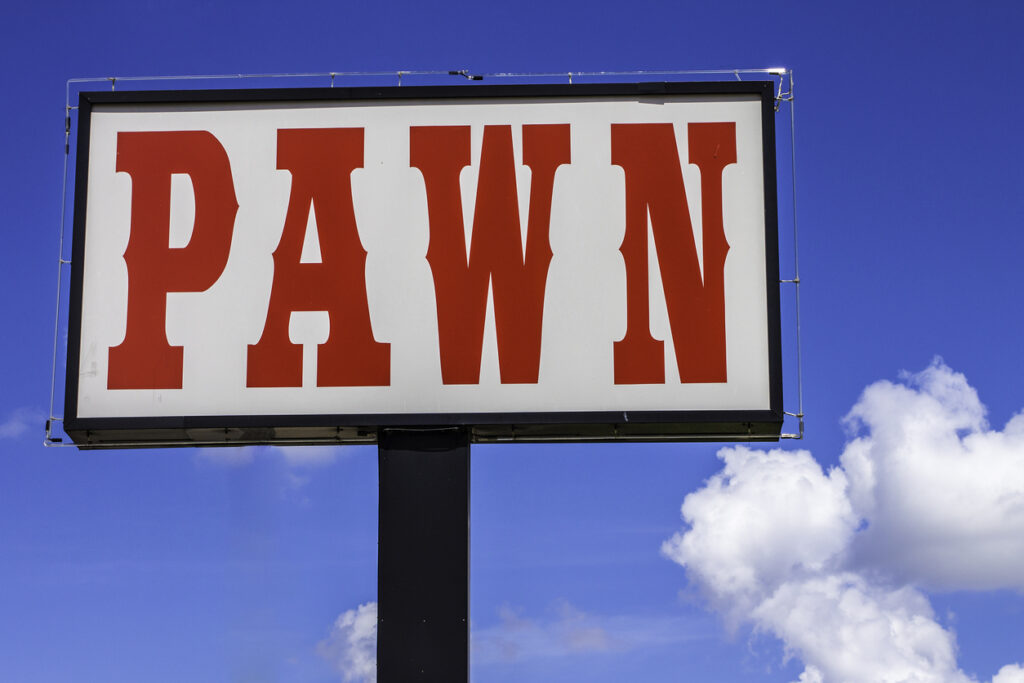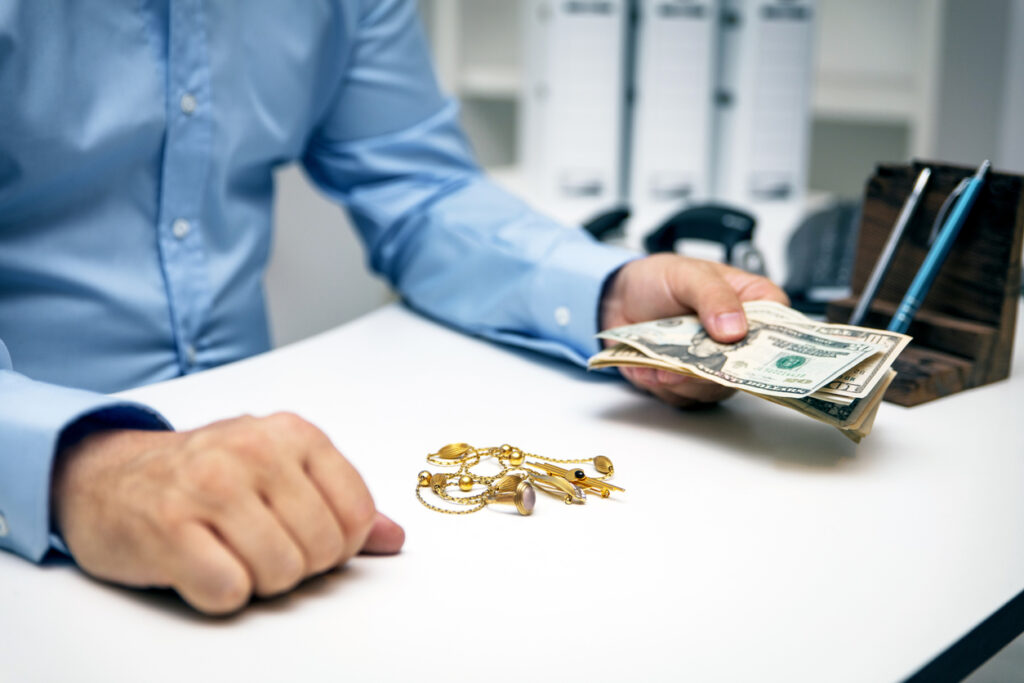Understanding the Impact of Trump’s Victory on Local Businesses
The recent election results usher in a new political climate that is bound to impact various sectors of the economy, particularly local businesses. With Donald Trump’s victory, many entrepreneurs are left wondering what this means for their operations moving forward. Economic policies proposed during his campaign have raised questions regarding taxes, regulations, and overall market sentiment.
Local businesses, including pawn shops, often operate on thin profit margins and are particularly sensitive to economic fluctuations. Trump’s promise to reduce corporate tax rates and loosen regulations could mean increased profits for these businesses, paving the way for expansion and investment in local communities. Conversely, uncertainties regarding international trade policies could negatively affect suppliers and inventory availability.
In addition to tax cuts, Trump’s administration has signaled a focus on deregulation, which could significantly alter the landscape for small businesses. For instance, easing restrictions on lending practices may provide local entrepreneurs with better access to capital, enabling them to invest in new technologies or enhance their service offerings. This potential influx of cash could stimulate job creation and boost local economies, fostering a more vibrant marketplace. However, the flip side of deregulation raises concerns about consumer protections and the long-term sustainability of business practices that prioritize short-term gains over ethical considerations.
Moreover, the local business ecosystem is interconnected, meaning that changes in one sector can have ripple effects throughout the community. For example, if local manufacturers benefit from reduced tariffs on raw materials, they may be able to lower prices, benefiting retailers and ultimately consumers. However, if trade policies lead to increased costs for imported goods, local businesses may face higher expenses that could be passed on to consumers, potentially dampening demand. As local entrepreneurs navigate this complex landscape, they will need to stay informed and agile, adapting to the evolving economic conditions shaped by the new administration.
The Resurgence of Pawn Shops in a Changing Economy

Pawn shops have been steadily regaining prominence in recent years, and this trend appears likely to continue in light of the recent political shifts. As economic uncertainty looms, more individuals are turning to pawn shops as a viable source for quick cash and valuable items. This increase in consumer reliance on pawn services is not just a byproduct of the economic climate but also an evolving perception of these establishments.
In urban areas, pawn shops are no longer viewed solely as last-resort lenders; they have shifted into mainstream acceptance as places where people can buy, sell, and trade valuable goods. This positive shift in perception could be bolstered by favorable economic policies and increased consumer spending resulting from job growth.
Moreover, the rise of online marketplaces has also played a significant role in reshaping the pawn industry. Many pawn shops are now embracing technology, offering online services that allow customers to browse inventory, receive appraisals, and even complete transactions from the comfort of their homes. This digital transformation not only broadens their customer base but also enhances transparency and trust, making it easier for consumers to engage with these businesses. As a result, pawn shops are becoming more than just places for quick loans; they are evolving into comprehensive retail environments that cater to a diverse clientele.
Additionally, the cultural perception of pawn shops has been positively influenced by popular media. Television shows and documentaries have highlighted the unique stories behind the items that pass through these shops, showcasing the rich history and personal narratives tied to various pieces. This newfound visibility has helped demystify the pawn process and foster a sense of community around these establishments. As more people become aware of the potential treasures hidden within pawn shops, they are likely to explore these venues not just for financial needs, but also for the thrill of discovery and the excitement of finding one-of-a-kind items.
How Political Shifts Influence Consumer Behavior

Political changes invariably affect consumer confidence and spending. With a new administration in place, several factors can encourage or dissuade consumer spending habits. For example, Trump’s focus on job creation and stimulating economic growth may invigorate consumers with a sense of optimism, leading to increased discretionary spending.
On the other hand, if policies result in economic instability or concern over inflation, consumers might become more cautious and prioritize saving over spending. Such a mindset can deeply affect how individuals view pawning high-value items as a financial cushion. Should disposable income rise due to favorable economic policies, we may witness a proportional increase in buying and selling at pawn shops, enhancing their role in the marketplace.
Moreover, political rhetoric can significantly shape consumer perceptions. For instance, during election cycles, candidates often make promises related to tax reforms or social welfare programs, which can sway public sentiment and spending behavior. If consumers believe that a new policy will lead to tax breaks or increased government support, they may feel more secure in their financial situation, prompting them to spend more freely on luxury items or services. Conversely, if a political climate is marked by uncertainty, such as debates over healthcare reforms or trade agreements, consumers may adopt a wait-and-see approach, delaying purchases and investments until they feel more assured about their economic future.
Additionally, the impact of political shifts extends beyond immediate consumer spending; it can also influence long-term brand loyalty and purchasing decisions. Companies that align themselves with popular political movements or social causes may attract consumers who share similar values, leading to shifts in market dynamics. For example, brands that advocate for sustainability or social justice may see an increase in support during politically charged times, as consumers seek to express their beliefs through their purchasing choices. This creates a complex interplay between politics and consumer behavior, where individuals not only respond to economic signals but also to the broader societal implications of their spending habits.
Pawn Shop Trends: What to Expect Post-Election

As the dust settles from the election, industry experts predict several key trends for pawn shops in the upcoming years. These trends may include a growing acceptance of online pawn services, especially as technological advancements make transactions more seamless and secure. As consumers become more tech-savvy, the demand for remote services is expected to rise.
Additionally, there may be a growing emphasis on sustainability and responsible trading. Consumers, particularly younger generations, are increasingly mindful of where and how they spend their money. Pawn shops that can align with these values—be it through eco-friendly practices or transparent sourcing—stand to gain a competitive edge.
Moreover, in an era marked by financial unpredictability, deluxe items such as luxury watches and designer handbags are likely to see significant resale value at pawn shops. Investors seeking alternative assets may turn to these markets, creating a support system whereby shoppers and traders both benefit.
The Role of Pawn Shops in Financial Recovery
Pawn shops play a crucial role in many communities, especially during economically challenging times. They provide a unique service that allows individuals to access cash quickly without the need for credit checks or lengthy approval processes. This accessibility can be a lifesaver for those facing emergencies or unexpected expenses.
Furthermore, as financial literacy continues to improve, more individuals are becoming aware of the benefits that pawn shops offer as an alternative financial solution. The ability to leverage personal assets while avoiding debt can significantly aid in personal finance management, making pawn services an increasingly popular choice.
For many, pawn shops are more than just businesses—they serve as a bridge to financial stability. They foster local economies by providing job opportunities and stimulating economic activity. As the political environment shifts, the resilience of pawn shops will undoubtedly showcase their invaluable position amid these changes.
In conclusion, the election of Donald Trump signals potential shifts in economic policies that could directly affect pawn shops and their operations. Understanding these impacts helps local businesses prepare and adapt to evolving consumer behavior, ensuring they remain a staple in the communities they serve. Looking ahead, pawn shops are positioned to thrive, helping individuals navigate financial hardships while contributing positively to local economies.








